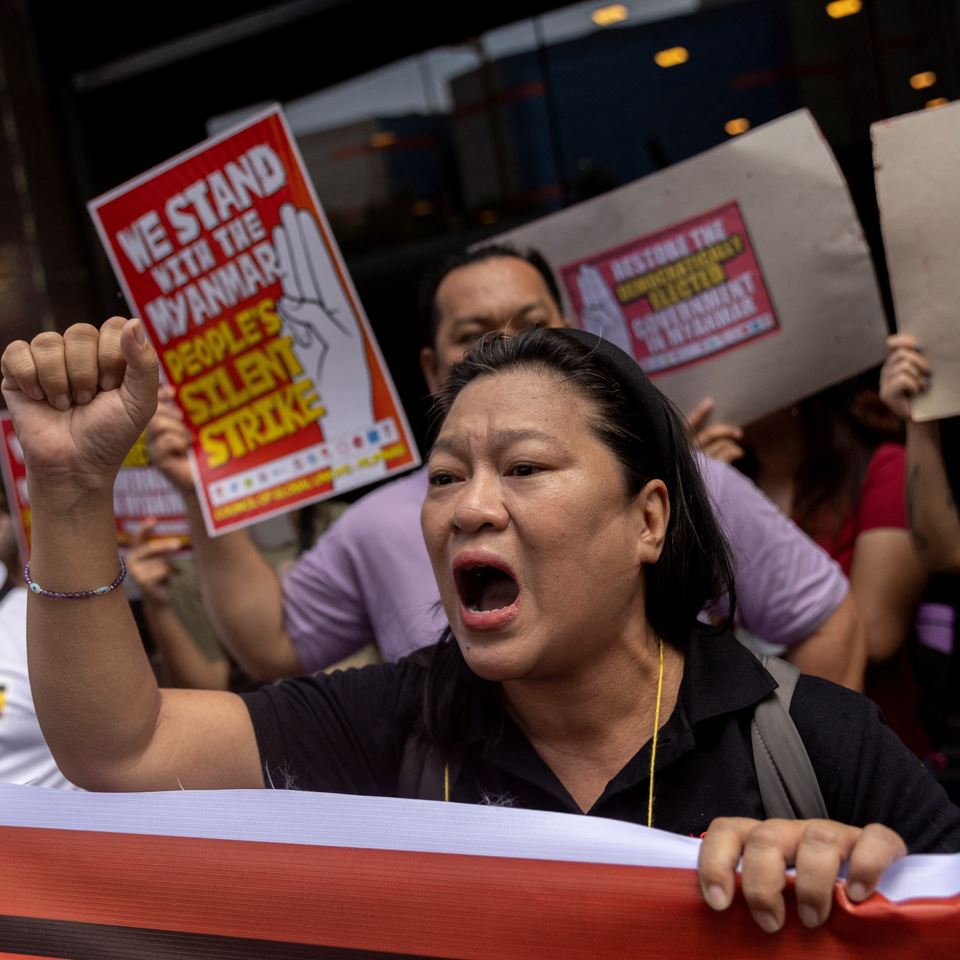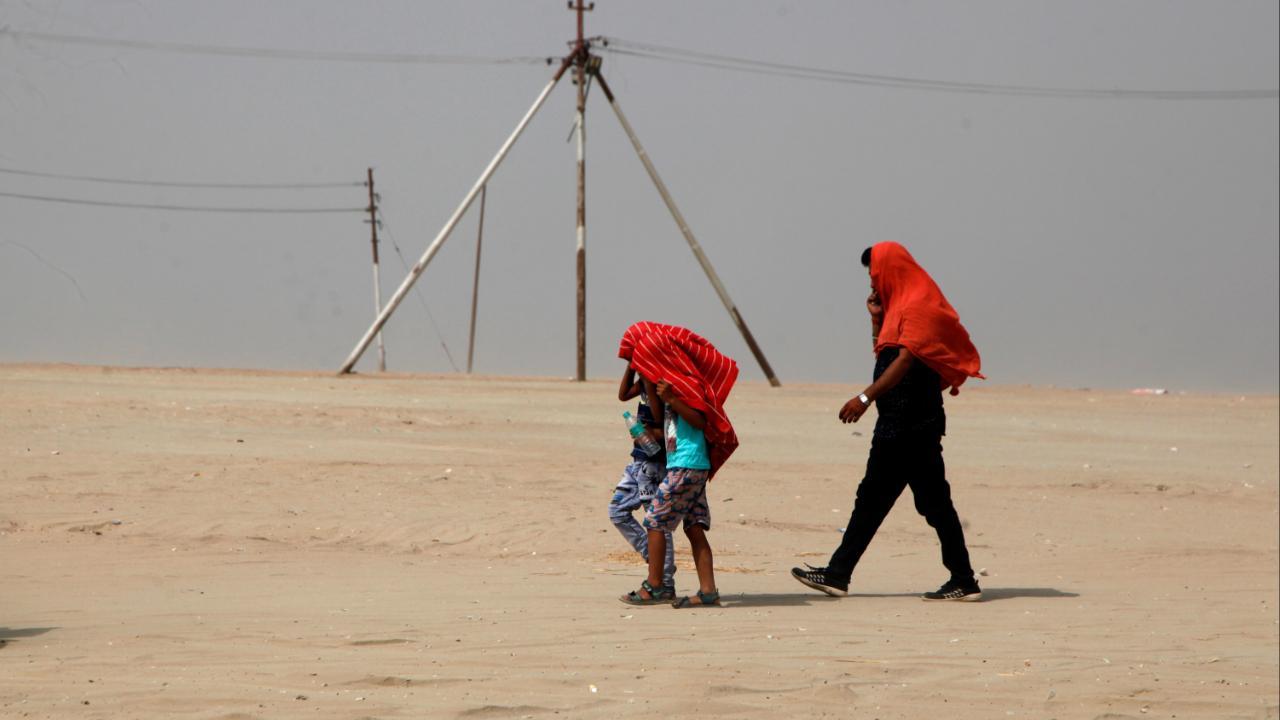The Uneven Application Of Sanctions: Britain And Australia's Response To The Myanmar Crisis

Table of Contents
The UK's Approach to Myanmar Sanctions
The UK's strategy toward Myanmar has centered on targeted sanctions and diplomatic engagement.
Targeted Sanctions and Asset Freezes
The UK has implemented targeted sanctions, primarily focusing on asset freezes and travel bans against key individuals within the military regime, including members of the State Administrative Council (SAC). These sanctions are designed to cripple the junta's financial networks and limit their ability to operate internationally.
- Specific examples of sanctioned individuals and entities: This includes senior military figures like Min Aung Hlaing, along with entities linked to the military's economic interests, such as Myanmar Economic Holdings Limited (MEHL).
- Legal framework: These sanctions are underpinned by the UK's sanctions regime, allowing for swift action against those deemed responsible for human rights abuses and undermining democracy in Myanmar. The legal basis allows for the freezing of assets held within UK jurisdiction and prevents sanctioned individuals from entering the country.
- Effectiveness: The effectiveness of these targeted measures remains a subject of debate. While they may have limited the financial maneuverability of some individuals, the junta has shown a capacity to adapt and circumvent these restrictions. The impact on the overall Myanmar economy has been less pronounced than hoped.
Diplomatic Engagement and International Collaboration
Alongside sanctions, the UK has actively pursued diplomatic engagement, collaborating with other nations and international bodies like the UN to coordinate a unified response.
- Multilateral initiatives: The UK has played a significant role in pushing for stronger resolutions at the UN Security Council and has engaged in bilateral discussions with other countries to align sanctions strategies.
- Effectiveness of diplomatic pressure: Diplomatic pressure, while valuable, has faced considerable challenges due to the lack of consensus within the UN Security Council, particularly due to the veto power held by some permanent members. This has limited the collective impact of international pressure.
- Limitations: The limitations of diplomatic engagement are evident in the ongoing violence and the lack of substantial progress towards a democratic transition in Myanmar. The junta’s defiance underscores the need for a more robust approach.
Australia's Response to the Myanmar Crisis: A Comparative Analysis
Australia's response to the Myanmar crisis differs significantly from the UK's, presenting a contrast in strategies.
Sanctions Regime Compared to the UK
While Australia has also implemented sanctions, they are arguably less comprehensive than the UK's.
- Specific examples of Australian sanctions: Australia has targeted specific individuals and entities linked to the Myanmar military, similar to the UK, but the scope of these sanctions may be considered more limited.
- Strengths and weaknesses: The strength of Australia’s approach lies in its focus on aligning with international partners; however, its relatively limited scope compared to the UK's may be seen as a weakness in terms of effectively pressuring the junta.
- Reasons for differences: The differing approaches might be attributed to various factors, including differing national priorities, the existing bilateral relationship with Myanmar, and the perceived effectiveness of various sanctions strategies.
Focus on Humanitarian Aid and Support for Refugees
Australia has placed a greater emphasis on humanitarian aid and support for refugees fleeing the violence in Myanmar.
- Humanitarian assistance: Australia has provided substantial financial and logistical support to humanitarian organizations operating in neighboring countries, assisting displaced persons and addressing urgent needs.
- Effectiveness of humanitarian aid: While humanitarian aid is crucial in alleviating suffering, its effectiveness in directly influencing the junta's behavior is limited. It addresses the symptoms rather than the root cause of the crisis.
- Limitations: Focusing primarily on humanitarian aid, while neglecting a more robust sanctions strategy, risks inadvertently sustaining the regime by not significantly impacting its power or resources. A balanced approach is needed.
Assessing the Effectiveness and Implications of Uneven Sanctions
The varied approaches of the UK and Australia highlight the challenges of applying international sanctions effectively.
Impact on the Myanmar Junta
The overall impact of both UK and Australian sanctions on the Myanmar military regime has been mixed.
- Economic indicators: While some economic indicators suggest a negative impact, the junta has demonstrated resilience, utilizing alternative financial routes and exploiting existing economic networks.
- Junta's response: The junta has largely ignored the international pressure, continuing its repressive tactics and showing a capacity to adapt to the sanctions.
- Unintended consequences: The sanctions may have had unintended consequences, impacting the civilian population more than the intended targets, further complicating the situation.
Implications for International Cooperation
The uneven application of sanctions raises serious questions about the efficacy of international cooperation in addressing crises.
- Unified international approach: A more unified and coordinated international approach to sanctions, with a clear strategy and strong enforcement mechanisms, is essential.
- Challenges in achieving cooperation: Achieving such cooperation is challenging, given the diverse national interests and political considerations of different countries.
- Alternative strategies: Exploring alternative strategies, such as targeted sanctions on specific industries, or strengthening international legal frameworks for accountability, could enhance the effectiveness of international pressure.
Conclusion
The UK and Australia's responses to the Myanmar crisis reveal a significant disparity in the application of Myanmar sanctions. While both countries have utilized targeted sanctions and diplomatic engagement, their scope and emphasis differ considerably. Australia's greater focus on humanitarian aid, compared to the UK's more robust sanction regime, underscores the complexities involved in crafting effective international responses to crises. The limited impact of the current sanctions highlights the need for a more comprehensive and coordinated international strategy. The ongoing crisis demands a more unified and effective approach to Myanmar sanctions, encompassing stricter measures combined with sustained diplomatic efforts. We urge readers to learn more about the ongoing situation in Myanmar and advocate for a more effective and unified international strategy to address the crisis. Research the effectiveness of various Myanmar sanctions and engage in informed discussions about improving international responses to similar crises. Understanding the multifaceted nature of Myanmar sanctions and their implications is crucial for creating lasting positive change.

Featured Posts
-
 Severe Heat Wave Prompts School Closures In Half Of Philippine Capital
May 13, 2025
Severe Heat Wave Prompts School Closures In Half Of Philippine Capital
May 13, 2025 -
 Gromkiy Skandal Muzh Nadezhdy Kadyshevoy I Dolgi Syna
May 13, 2025
Gromkiy Skandal Muzh Nadezhdy Kadyshevoy I Dolgi Syna
May 13, 2025 -
 Jelena Ostapenkos Repeat Victory Over Iga Swiatek Sends Her To Stuttgart Semis
May 13, 2025
Jelena Ostapenkos Repeat Victory Over Iga Swiatek Sends Her To Stuttgart Semis
May 13, 2025 -
 Jannes Horn Von Hannover 96 Nach Braunschweig Ein Wechsel Mit Geschichte
May 13, 2025
Jannes Horn Von Hannover 96 Nach Braunschweig Ein Wechsel Mit Geschichte
May 13, 2025 -
 Nmmcs Aala Unhala Niyam Pala Campaign Navi Mumbais Heatwave Advisory
May 13, 2025
Nmmcs Aala Unhala Niyam Pala Campaign Navi Mumbais Heatwave Advisory
May 13, 2025
Latest Posts
-
 Cassie And Alex Fine Mob Land Premiere Photos Featuring Pregnant Cassie
May 13, 2025
Cassie And Alex Fine Mob Land Premiere Photos Featuring Pregnant Cassie
May 13, 2025 -
 Pregnant Cassie Ventura And Husband Alex Fine Make First Public Appearance
May 13, 2025
Pregnant Cassie Ventura And Husband Alex Fine Make First Public Appearance
May 13, 2025 -
 Cassie Ventura And Alex Fines Red Carpet Appearance Photos From The Mob Land Premiere
May 13, 2025
Cassie Ventura And Alex Fines Red Carpet Appearance Photos From The Mob Land Premiere
May 13, 2025 -
 Cassie Ventura And Alex Fines Red Carpet Appearance Pregnant Cassies Mob Land Premiere Debut
May 13, 2025
Cassie Ventura And Alex Fines Red Carpet Appearance Pregnant Cassies Mob Land Premiere Debut
May 13, 2025 -
 Cassie Announces Pregnancy Third Child On The Way
May 13, 2025
Cassie Announces Pregnancy Third Child On The Way
May 13, 2025
